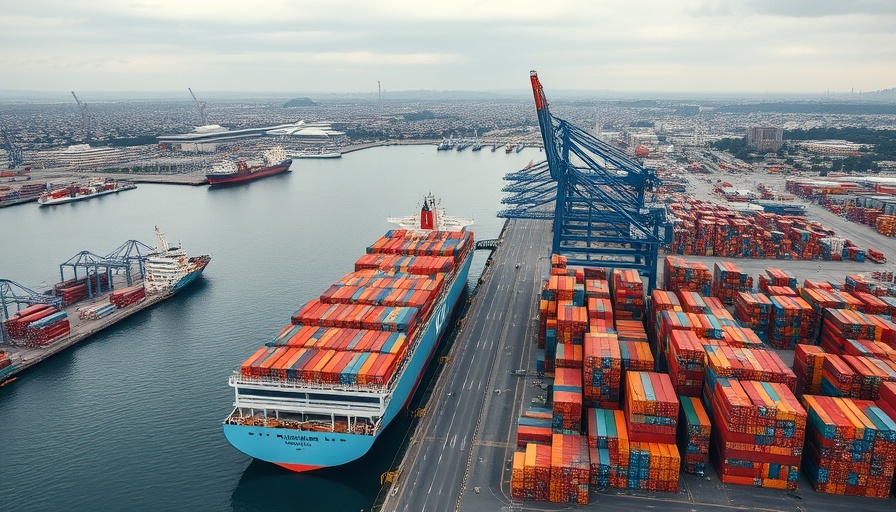
As Tariff-Free Trade Ends, What Lies Ahead for US-China Relations?
With the looming conclusion of tariff-free shipments as the last freighters arrive in Los Angeles, the backdrop for upcoming US-China trade talks has raised questions about the future of trade relations between the two economic powerhouses. Since early April, tariffs on imported goods from China skyrocketed to 145%. This increase has spurred a frantic rush among importers to stock up on goods before the rates became prohibitive, leading to a significant decline in cargo shipments. Businesses now face a challenging landscape that may reshape their strategies and influences on the US economy.
The Economic Landscape: Supply Chain Disruptions
The rise in tariffs is symptomatic of deeper supply chain disruptions that have been exacerbated by the ongoing trade war and the effects of the pandemic. Many businesses, especially in the manufacturing and retail sectors, find themselves navigating an uncertain environment that complicates sourcing and logistics. As companies grapple with these shifts, understanding the implications of tariffs on their operations is critical. For many in the tech industry and startups, adapting quickly to changes in supply chain dynamics could mean the difference between profit and loss.
Future Predictions: The Long-Term Consequences of Trade Talks
As trade talks begin, experts predict that businesses may need to rethink their supply chains and consider alternative markets. The possible outcomes of negotiations could either stabilize the current conditions or push companies to be even more innovative in their approaches to sourcing and distribution. Analysts are already forecasting changes in production practices, where companies may start to diversify their manufacturing locations away from China to mitigate the risk of future tariffs. This shift could lead to the rise of new business opportunities, technological innovation, and ultimately, a more resilient economy.
Opportunities for Growth Amidst Challenges
It's important for industry leaders to recognize that challenges often bring about growth opportunities. While tariffs might restrict certain imports, they also provide a fertile ground for local manufacturing and innovation within the Bay Area. Entrepreneurs and startups aiming for substantial impact can capitalize on the trend towards sustainability and green business practices. Aligning business models with sustainable practices could not only appeal to a market increasingly concerned with corporate social responsibility but also prepare companies for compliance with future regulations in a post-tariff environment.
Conclusion: Moving Forward with Caution and Adaptability
As the trade talks approach, the message for business professionals is clear: adaptability is key. Understanding the nuances of the evolving political landscape and its implications for local industries will be paramount for success. For companies in the Bay Area and beyond, sharing insights and strategies will be essential in leveling the playing field. Now is the time to prepare and innovate in a climate that demands new solutions.
 Add Row
Add Row  Add
Add 



Write A Comment